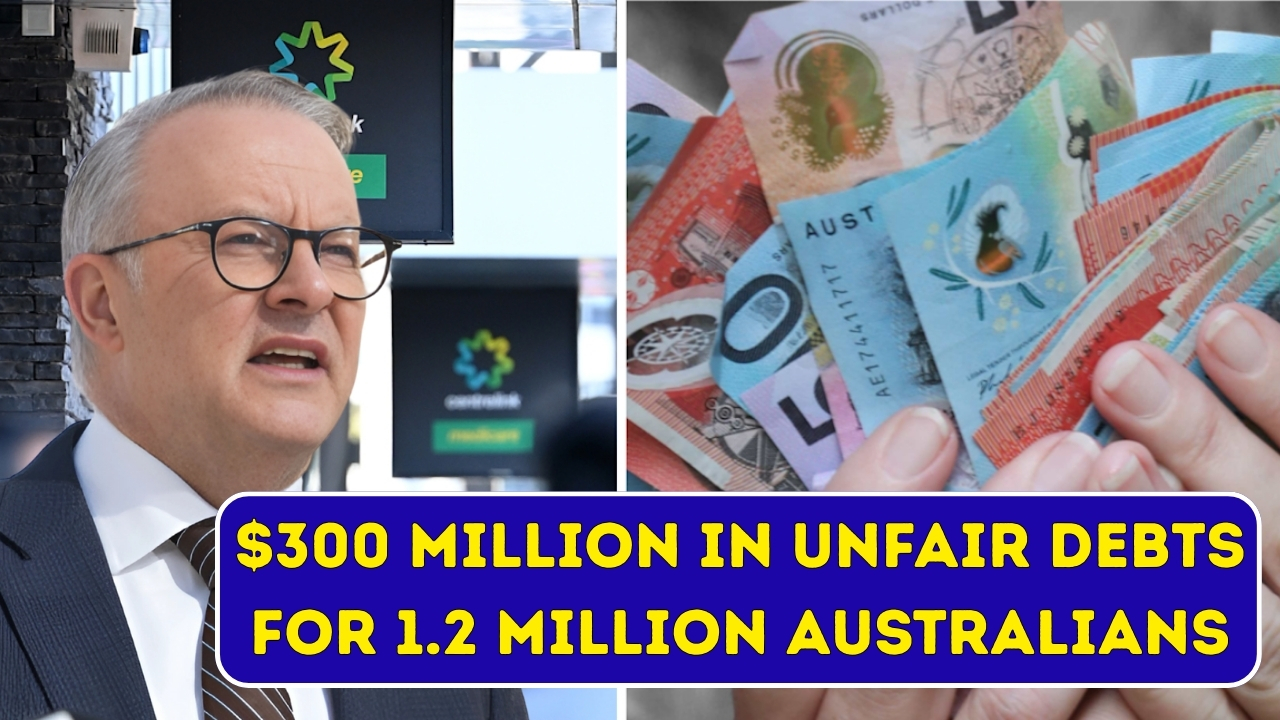In a landmark decision, the Australian Government announced that Centrelink will cancel $300 million worth of debts for close to 1.2 million people. This decision will help mitigate the negative impact of the long outstanding grievances relating to the fairness of certain debt recovery methods, particularly those associated with the infamous “robodebt” program. Officials confirmed that the waived debts were restored as “unfair” or “incorrectly raised,” therefore many welfare recipients who were burdened with the debts felt a sense of relief.
Millions Ignored for Years
For many years, the Australian helplessly challenged the government for the debts that were raised against them without a shred of evidence. Even when one attempted to resolve the matter, they were met with notices claiming they owed a certain amount, sometimes even years old. In many cases, the debtors were Over 60 years of age, single handedly raising a child, or unemployed and were in dire need of financial support. They can not afford to either attend the court for the resolution or settle the matter by paying up. “I was told to pay 3,000 dollars. This amount was supposedly dispensed for me, so of course I denied it. This was criminal to me,” said a parent from Melbourne.
Government Attempts to Regain Trust with Citizens
The government underscored that this decision along with several others tries to make bolster stern public perceptions of welfare and the associated Centrelink services. Minister for Government Services Bill Shorten (example attribution) argued that the waivers demonstrate the acknowledgment of past mistakes and a commitment for similar errors not to happen in the future. “No Australian should be unfairly burdened with a debt that never should have been raised,” he stated and added that there will be better supervision in place.
Impact on Households
For the 1.2 million Australians impacted, the waivers are not simply monetary relief. It is the lifting of a psychological burden that, in some cases, has persisted for years. Australian families in the low to middle-income bracket have struggled with affording rent, paying bills, and buying groceries. Advocacy groups argue the decision will enable many Australian households and families to stabilize and concentrate on enhancing their financial health.
Broader Implications for Welfare Policy
Though the announcement has been met with praise, others consider that it demonstrates the lack of systematic overhaul in place needing attention. Social policy experts believe the welfare compliance framework still relies far too much on automated decision-making tools that lack detail in evaluating specific cases. The decision to remove so much debt from so many Australian families will likely shape future policy discussions regarding the balance of Centrelink’s responsibilities to vulnerable Australians and its obligation to be accountable.
What Comes Next
Individuals affected will be sent formal notifications of the debts that have been written off. Individuals who have been making payments in the last several years could also be reached out to for possible reimbursements. The government states that it intends to work on the creation of more equitable compliance systems that seek both responsibility and kindness. For the countless individuals who had to endure the constant terror of living and the relentless phone calls and payments, this announcement is more than just the cancellation of debt—it is an overdue recognition of the suffering they have been put through.



